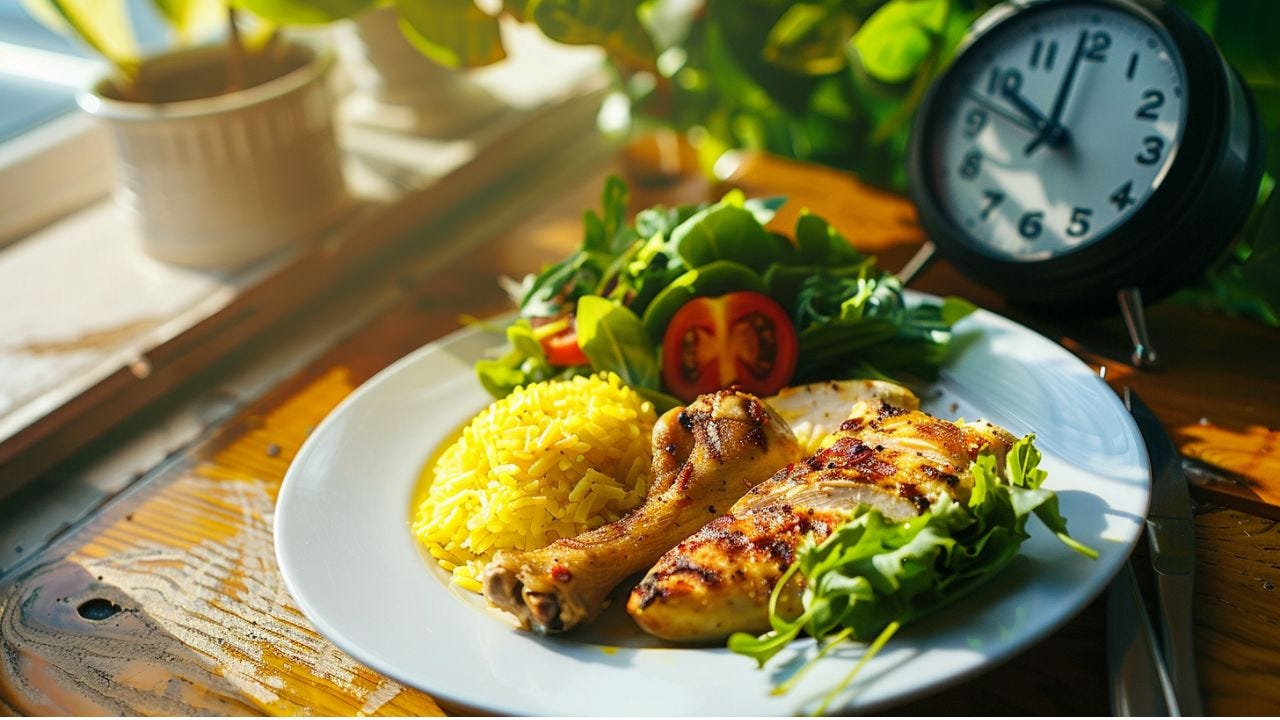Setting the Stage for Success: Best Practices in Dinner Timing
How to Optimise Your Mealtimes
When it comes to mealtime and weight loss, thoughtful planning alongside good timing is key! Start your day with a hearty breakfast to kickstart your metabolism and keep hunger at bay.
Throughout the day, aim for smaller, balanced meals and snacks to maintain steady energy levels and avoid those super hungry moments that can lead to overeating.
And remember, it's not just about when you eat, but also what you eat. Load up on nutrient-rich foods like fruits, veggies, lean proteins, and whole grains to keep you feeling satisfied and fuelled up.
Finally, try to wrap up your dinner at least a few hours before hitting the hay to give your body time to digest and rest.
Intermittent Fasting
Another strategy to promote healthy weight loss is intermittent fasting. This includes restricting eating to specific windows of time, like an 8-hour window during the day, which can help regulate calorie intake and promote fat burning.
Plus, if you finish dinner earlier in the evening, it sets you up for a longer fasting period overnight, making it easier to stick to your fasting schedule.
This approach to meal timing not only aids in weight loss but can also improve metabolic health and regulate blood sugar levels.
So, if you're looking to shed some kilos and simplify your eating routine, giving intermittent fasting a try might be worth it!




